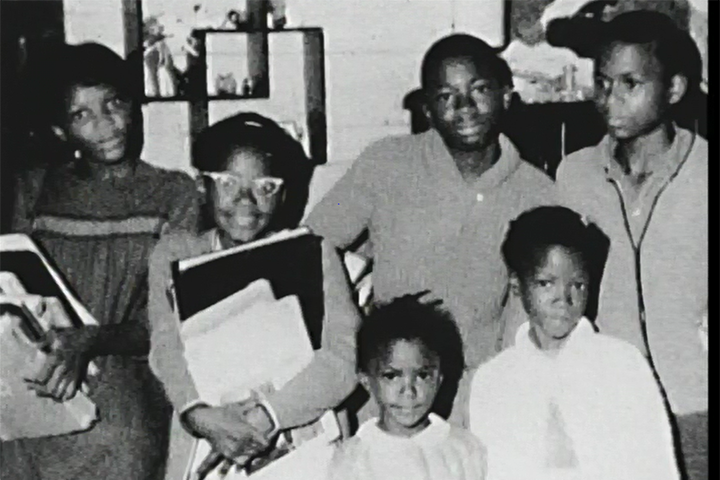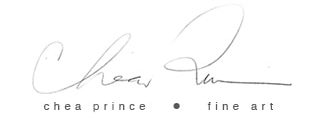| c i n e – e s s a y: An odd hybrid of the documentary and experimental form, the essay film couples visual — usually documentary — images with extensive narration to create an idiosyncratic, often reflexive, thesis. These films generally skew all forms of conventions of both fiction and mainstream non fiction films: there is no plot as such and few interviews. Instead there is solely the argument of the film. The themes that this style addresses often concern the nature of representation, time, memory, history and the medium of cinema itself, and encompass the contradictions inherent in plenitude, which is a kind of emptiness, and negation, which is a kind of affirmation. | |||
One-way Streets (2017). It is light that prevents us from seeing, it is the ability to give meaning that abandons us to the imperceptible action of what is hidden behind meaning and acts through this very dissimulation.
— Maurice Blanchot
Are we, then, insane because we have not gone mad?
― Hermann Broch, The Sleepwalkers
Preview — TRT: 9:33
68 minutes / color
Keywords: death of the author, dialectic, super-rational, quantum theory, spooky action, consciousness, holographic paradigm, something, nothingness
Public Domain,Inc.
Producer/Editor: Chea Prince
Release Date: 2017
Format: DVD
Speaking in Tongues (2017). Glossolalia (from the Greek, (glossa), tongue and (lalô), I speak) comprises unintelligible utterances, often as part of religious practice. Glossolalia is claimed by some to be an unknown mystical language; others claim that glossolalia is the speaking of an unlearned foreign language (xenoglossia).
Preview — TRT: 5:22
54 minutes / color
Keywords: glossolalia, xenoglossia,
baudrillard, something, nothingness
Public Domain,Inc.
Producer/Editor: Chea Prince
Release Date: 2016
Format: DVD
OTHER rhythms (2016).
a wave of concentric circles ripple
from thrown skipping stones
appearance diminishing presence to absence
the pattern spreading like a cat’s-paw
haunting the water
ocean breaks and spills onto white sand
water echoes
through time and tempo stealing
deeper into the lost desert light at ocean’s edge
unknown
Preview — TRT: 5:00
47 minutes / color
Keywords: algeria, derrida, cinema, ghosts,
waste land, elliot
Public Domain,Inc.
Producer/Editor: Chea Prince
Release Date: 2016
Format: DVD
sans_âme (2013)
A vague meditation on caliginosities. (Nudity; explicit sexual acts.)
Preview — TRT: 0:57
68 minutes / color
Keywords: Baudelaire, Les Fleur du Mal, sans_âme
Public Domain,Inc.
Producer/Editor: Chea Prince
Release Date: 2013
Format: DVD
Bad Infinity (‘schlechte Unfindlichkeit’) vs. Rumors of Other Worlds;
OR: Halo My Baby, Halo my Honey, Halo My Rag Time Doll (2008)
Always a cracking point, a fold,
measured in the face as time
The squirming meeting of temporal strategies,
The charred remains co-existing with the fresh paint
Of new skin, cicatrix mounding at the edge
Threshold, support, cleavage
new trinity same as the old trinity maybe,
book of ages,
amounting to ageless sepia, nothing less nothing more…
Preview — TRT: 10:14
68 minutes / color
Keywords: schlechte Unfindlichkeit, bad infinity, exteriorization, Blanchot, halo, something, nothingness
Public Domain,Inc.
Producer/Editor: Chea Prince
Text: Robert Cheatham
Release Date: 2008
Format: DVD
Imagen del Hombre Nuevo (2007). Ernesto Guevara de la Serna (June 14, 1928 ? October 9, 1967), commonly known as Che Guevara or El Che, was an Argentine-born Marxist revolutionary, doctor, political figure, and leader of Cuban and internationalist guerrillas. After his death, Guevara became an icon of socialist revolutionary movements worldwide. An Alberto Korda photo of him (shown) has received wide distribution and modification. The Maryland Institute College of Art called this picture “the most famous photograph in the world and a symbol of the 20th century..”
Preview — TRT: 10:14
62 minutes / color
Keywords: guevara, hauntology,
commodification, christification
Public Domain,Inc.
Producer/Editor: Chea Prince
Release Date: 2007
Format: DVD
The Politics of Imagination (2006). History in general, and the twentieth century in particular, had a great deal of trouble with the idea of the imagination as an active psychological element. Although now fallen from its historically high cerebral throne to some faculty belonging to what are essentially non-cerebral systems, such as television, nevertheless the word imagination still smacks of mysticism, of dangerous primitivism, indeed of the occult. The intellect can make convincing things, the emotions can give deep human moral understanding, but though the imagination is an element in all this activity, pure imagining for its own sake is far less understood, and has always been a most curious and awesome element of the human personality. — Colin Bennett
Preview — TRT: 5:00
25 minutes / color
Keywords: unconscious, desire,
imagining, creativity, politics
Public Domain,Inc.
Producer/Editor: Chea Prince
Release Date: 2006
Format: DVD
The Final Race (2006). On September 22, 1906, white mobs poured into the Five Points area of downtown Atlanta intent on racial violence. Enflamed by months of political rhetoric and newspaper sensationalism that fed racial fears and stereotypes, the violence against black citizens spread rapidly to East Atlanta, to Brownsville and Inman Park. In the end at least twelve were dead, hundreds injured, and many blacks, fearful for their lives, fled the city — their fates erased from history. The Final Race includes narrative regarding the race riot itself, as well as commentary on the origins of Pentecostalism, abduction by UFOs, skin, race, the mystery of time and remembrance, and the community-to-come.
Preview — TRT: 5:00
50 minutes / color
Keywords: race, riot, white supremacy,
ufo, time, commumity, skin, miscegnation
Public Domain,Inc.
Producer/Editor: Chea Prince
Release Date: 2006
Format: DVD
names-of-the-father (2006). “The reign of the Name-of-the-Father,” says Jacques-Alain Miller, “corresponds in psychoanalysis to the epoch of Freud. If Lacan extracted it, brought it to light, formalized it, it is not in order to adhere to it, to develop this Name-of-the-Father, but to put an end to it.” Lacan did this, put an end to the Name, when he introduced the notion of names-of-the-father (the crucial details not to be missed here are the use of the plural and the lack of capital letters.) Whereas in the Freudian epoch subjects might still believe in the reality or truth of the Other, in the Name-of-the-Father — in the Lacanian epoch the Other no longer exists as such.
Preview — TRT: 4:59
70 minutes / color
Keywords: lacanian, woman, law, desire,
borromean knot, real, imaginary, symbolic
Public Domain,Inc.
Producer/Editor: Chea Prince
Release Date: 2006
Format: DVD
THE MECHANICAL OCCULT (2006).
Art was originally an evoker of the dead, a rescuer of the dead (and the living) through mediumistic contact… a shuttle craft across the last abyss … a rattle shaken over a decomposing body … a vision pursued through an induced psychotropic haze or abject bodily exhaustion, then revivification with true hallucinations.
Does art still have a psychopompic role to play or has the very speed of transmission / storage precluded even that minimal protestant state?
Preview — TRT: 5:02
40 minutes / color
Keywords: raudive, voices, abandonment,
divination, archetype, surrrealism
Public Domain,Inc.
Producer/Editor: Chea Prince
Text: Robert Cheatham
Release Date: 2006
Format: DVD
The Postmodern Animal
What is the relationship between animal and human and to what extent does that relationship suggest and shape ideas about identity and creativity? Is the human somewhere in-between animal and divine? Are we as such a waiting animal, an anxious animal … caught between anticipation and absence? Do we live in time, bound to the temporal … bookended between two absented Others … two eternities?
Preview — TRT: 5:00
26 mins. / color
Keywords: identity, creativity, dream, body, flesh, nietzsche, hybrid, bare life
Public Domain,Inc.
Producer/Editor: Chea Prince
Text: Robert Cheatham
Release Date: 2006
Format: DVD
PD Shorts (2002-2005).
The odd, the abstract and things that don’t quite fit.
metal fatigue
(2002 TRT: 7’15”)
A late-night drive haunted by uncanny, dimensional breaks.
Public Domain,Inc.
Producer/Editor: Chea Prince
Video/Text: Robert Cheatham
Release Date: 2002
Format: DVD
counting to six
(2004 TRT: 8’40”)
Six illustrated dada poems by Hugo Ball.
Public Domain,Inc.
Producer/Editor: Chea Prince
Release Date: 2002
Format: DVD
desert rain
(2005 TRT: 3’18”)
A meditation on monstrous birth.
Public Domain,Inc.
Producer/Editor: Chea Prince
Release Date: 2002
Format: DVD
1956 (2005). The “I” that is responsible for others, the I bereft of selfhood, is sheer fragility, through and through on trial. This I without any identity is responsible for him to whom he can give no response; this I must answer in an interrogation where no question is put; he is a question directed to others from whom no answer can be expected either. The Other does not answer.
— Maurice Blanchot, The Writing of the Disaster, 119)
Preview — TRT: 5:00
40 minutes / color
Keywords: atom bomb, concentration camps,
forgetting, blanchot, fragmentation, secret
Public Domain,Inc.
Producer/Editor: Chea Prince
Release Date: 2005
Format: DVD
Fog City is a haunting essay on the interplay of fragments, [re]presentations, reverberations and echoes within history, time, memory and the present. The non-linear narrative floats around San Francisco, switching between past and present, between Height Ashbury and Baghdad. It explores a city as both an abstract and concrete site of historical cross-currents, conflicts, cultures, change and resistance, and explores the extreme possibility that history may be going nowhere.
Preview — TRT: 5:00
120 minutes / color
Keywords: memory, time, history, war,
representation, silence, murmur, death
Public Domain,Inc.
Producer/Editor: Chea Prince
Release Date: 2005
Format: DVD
The Intolerable Burden (2003). In the autumn of 1965, sharecroppers Mae Bertha and Matthew Carter enrolled the youngest eight of their thirteen children in the public schools of Drew, Mississippi. Their decision to send the children to the formerly all white schools was in response to a “freedom of choice” plan. The plan was designed by the Drew school board to place the district in compliance with the provisions of the Civil Rights Act of 1964, essential since without compliance, the district would no longer be eligible for financial support from the Federal government. Given the prevailing attitudes, Blacks were not expected to choose white schools. This proved true for all but the Carters.
The Intolerable Burden places the Carter’s commitment to obtaining a quality education in context, by examining the conditions of segregation prior to 1965, the hardships the family faced during desegregation, and the massive white resistance, which led to resegregation.
In the epilogue, the film poses the dilemma of “education vs. incarceration” – a particular threat to youth of color.
While the town of Drew is geographically isolated, the patterns of segregation, desegregation, and resegregation are increasingly apparent throughout public education systems in the United States.

Available from First Run / Icarus Films:
http://icarusfilms.com/if-into
56 minutes / color
Closed Captioned
Release Date: 2003
Copyright Date: 2003
Format: DVD/VHS
Full length videos are available for purchase @ Public Domain, Inc. (with the exception of “The Intoleravble Burden” available @ Icarus Films)
